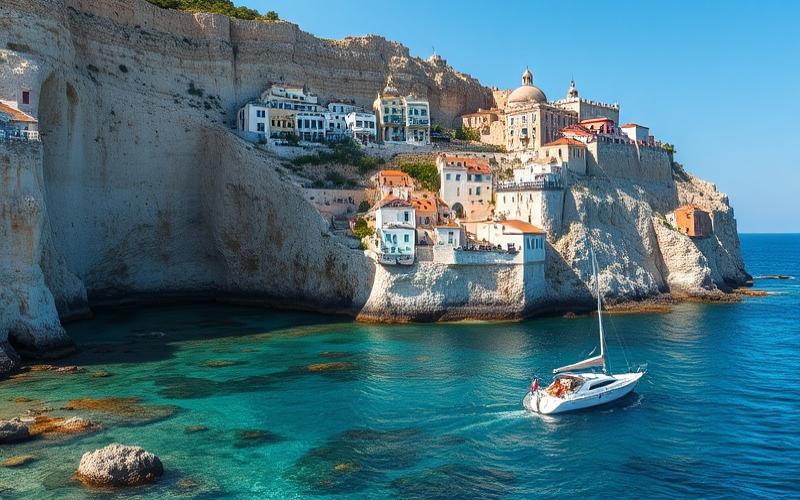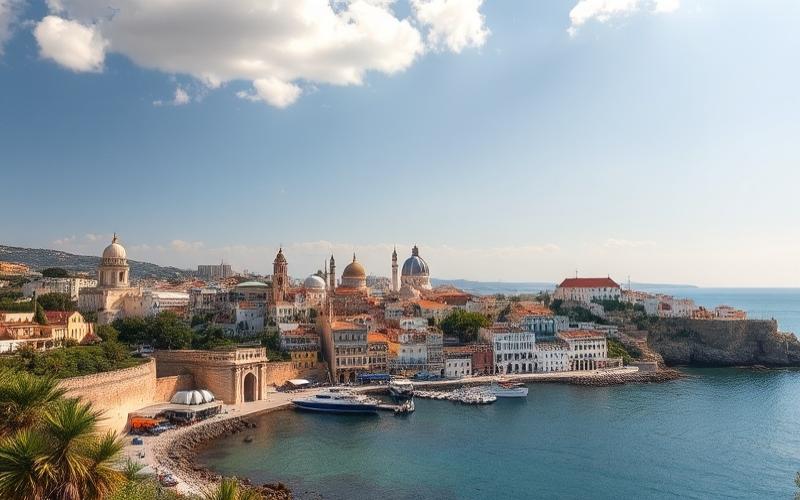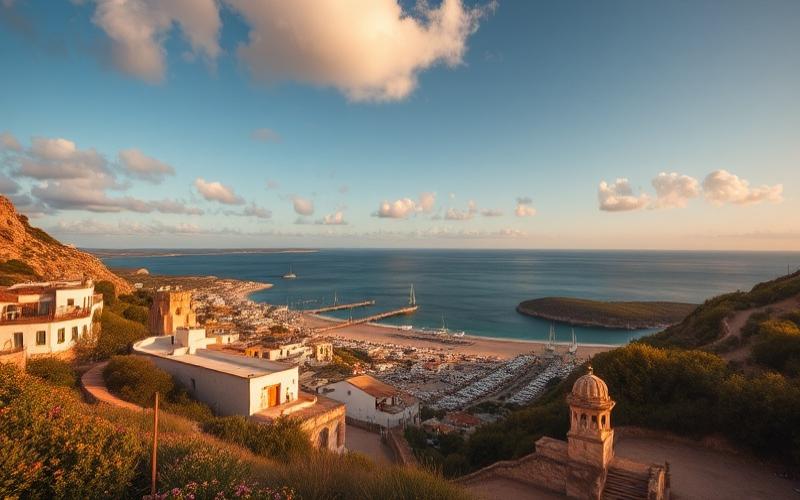
 Published on and written by Cyril Jarnias
Published on and written by Cyril Jarnias
Located in the heart of the Mediterranean, Malta has become a sought-after destination for international businesses and expatriate workers. With its dynamic economy and business-friendly regulatory framework, the Maltese archipelago is attracting an increasing number of foreign investors. However, to successfully establish a business or relocate to Malta, it is crucial to thoroughly understand the specifics of local labor law. This article provides a comprehensive overview of the main provisions governing employment relationships in this small island member state of the European Union.
Employment Contracts: The Cornerstone of Professional Relationships
In Malta, as in many countries, the employment contract is the fundamental document governing the relationship between employer and employee. Maltese legislation recognizes several types of contracts, the most common being the indefinite-term contract and the fixed-term contract.
The indefinite-term contract is the most widespread form and offers greater job security to the employee. It can be terminated by either party, subject to compliance with a notice period whose duration varies based on the employee’s seniority. The fixed-term contract, on the other hand, is concluded for a defined period and automatically ends at the agreed term, unless explicitly renewed.
An important aspect to note is that Maltese law requires the employment contract to be established in writing and provided to the employee within eight working days of the start of the employment relationship. This document must contain essential information such as the identity of the parties, workplace, job description, contract start date, duration (for fixed-term contracts), salary, working hours, and leave.
It is also possible to conclude part-time employment contracts or temporary contracts in Malta. These more flexible forms of employment are governed by specific provisions aimed at protecting the rights of the workers concerned.
Good to Know:
In Malta, the probation period is generally six months, unless otherwise agreed between the parties. During this period, either party may terminate the contract without notice or compensation.
Social Obligations: An Evolving Social Protection System
The Maltese social security system, although less extensive than in some European countries, provides basic coverage for workers. Employers and employees are required to contribute to this system, which covers risks such as illness, unemployment, and retirement.
Contribution rates are set annually by the government. In 2025, the total contribution amounts to 20% of gross salary, split equally between employer and employee (10% each). However, there are contribution caps for high incomes.
A particular aspect of the Maltese system is the existence of an annual “bonus” paid by the government to all workers, regardless of their income level. This bonus, introduced to compensate for certain increases in the cost of living, is added to the salary and is not subject to social contributions.
Regarding healthcare, Malta has a public healthcare system that is free for all residents. However, many employers choose to offer supplementary private health insurance to their employees, which is seen as an attractive social benefit.
Maltese employers are also required to take out insurance against workplace accidents for their employees. This obligation stems from the European directive on equal treatment in social security, which Malta has transposed into its national legislation.
Good to Know:
Self-employed workers in Malta are subject to a specific social contribution regime, with variable rates depending on their annual income.
Minimum Wage: A Safety Net for Workers
Malta is one of the European Union countries that has established a legal minimum wage. In 2025, the national minimum wage stands at 970 euros per month for a full-time job, placing Malta in the group of European countries with a minimum wage below 1000 euros, but nevertheless among the highest in this group.
It is important to note that this amount is regularly reviewed by the Maltese government, in consultation with social partners. Increases take into account the evolution of the cost of living and the country’s economic situation.
The minimum wage applies to all sectors of activity, but some collective agreements may provide for higher minimums for specific professions or sectors. Employers are required to respect this minimum threshold, under penalty of sanctions.
For part-time workers, the minimum wage is calculated pro-rata based on the number of hours worked. Additionally, Maltese legislation provides for supplements for night work and overtime.
It is interesting to note that despite the existence of a minimum wage, the Maltese government actively encourages employers to offer higher remuneration to attract and retain talent, particularly in high-growth sectors like financial services and information technology.
Good to Know:
Young workers (under 18) and apprentices may be paid below the national minimum wage, according to specific scales set by law.
Average Salaries: A Reflection of Economic Growth
Beyond the minimum wage, it is interesting to examine average salaries in Malta, which reflect the country’s economic health and its attractiveness to skilled workers. According to the latest data from Malta’s National Statistics Office, the average gross salary in 2025 is approximately 1,800 euros per month, across all sectors.
However, there are significant disparities between sectors of activity. The highest-paying sectors are generally:
- Financial services and insurance
- Information and communication technology
- Online gaming
- Professional and scientific services
In these fields, average salaries can easily exceed 2,500 euros per month, or even reach much higher levels for management positions.
Conversely, sectors like hospitality, retail, or certain personal services generally offer salaries closer to the minimum wage.
It is important to note that the cost of living in Malta, although increasing in recent years, remains lower than in many major European cities. This means that the purchasing power of Maltese employees can be relatively good, especially for those working in the highest-paying sectors.
Another aspect to consider is the growing practice of compensation packages including benefits in kind. Many companies, particularly in high-value-added sectors, offer bonuses, private health insurance, retirement savings plans, or even stock options to attract and retain talent.
Good to Know:
Highly qualified expatriates working in Malta in certain sectors may benefit from an advantageous tax regime, with a fixed tax rate of 15% on their income for a limited period.
Salary Skills: A Labor Market in Search of Talent
The Maltese labor market is characterized by a growing demand for specialized skills, particularly in cutting-edge sectors. This situation has led to a significant valuation of certain skills, resulting in attractive remuneration levels for sought-after profiles.
Among the most sought-after and highest-paid skills in Malta are:
- IT developers and engineers, particularly in the fields of artificial intelligence, blockchain, and game development
- Cybersecurity experts
- Data analysis and data science specialists
- Finance professionals, especially in wealth management and regulatory compliance
- Digital marketing and e-commerce experts
For these profiles, salaries can easily reach 3,000 to 5,000 euros per month, or even more for management positions or highly experienced experts.
In response to this demand, the Maltese government has implemented initiatives to develop local skills, notably through training programs and partnerships with businesses. Simultaneously, Malta has relaxed its immigration policies for skilled workers to attract foreign talent.
It is interesting to note that proficiency in English, an official language in Malta alongside Maltese, is a major asset in the local job market. Multilingual professionals, especially those who master other European languages, are also highly sought after, particularly in the tourism, international customer service, and online gaming sectors.
Good to Know:
Malta has established a special visa system for “digital nomads,” allowing self-employed workers and remote employees to temporarily settle on the island while working for foreign clients or employers.
Unions and Workers’ Rights: Active Social Dialogue
Despite its small size, Malta has a well-established trade union tradition and a legal framework protective of workers’ rights. Maltese labor law, largely influenced by European directives, guarantees a set of fundamental rights to employees.
The main Maltese unions, such as the General Workers’ Union (GWU) and the Union Ħaddiema Magħqudin (UĦM), play an active role in collective bargaining and social dialogue. They regularly participate in discussions with the government and employers’ organizations on issues such as wages, working conditions, and social reforms.
Among the important rights guaranteed to Maltese workers are:
- The right to a written employment contract
- Limitation of working time to 48 hours per week on average, including overtime
- A minimum of 4 weeks of paid leave per year
- Protection against unfair dismissal
- Equal treatment and non-discrimination
- The right to professional training
Maltese legislation also pays particular attention to work-life balance. For example, parents are entitled to unpaid parental leave of 4 months per child until the age of 8. Furthermore, recent provisions have strengthened the right to flexible work for parents and caregivers.
Regarding the resolution of labor disputes, Malta has a specialized industrial tribunal, competent to handle disputes between employers and employees. This tribunal plays an important role in the effective enforcement of labor law.
It is important to note that the unionization rate in Malta remains relatively high compared to many other European countries, giving unions significant weight in negotiations. However, as in other countries, the unionization rate tends to be lower in emerging sectors and among younger workers.
Good to Know:
Foreign workers in Malta benefit from the same rights and protections as Maltese workers, in accordance with the principle of non-discrimination enshrined in European and Maltese legislation.
Conclusion: A Constantly Evolving Legal Framework
Maltese labor law, although rooted in a tradition of worker protection, continues to evolve to adapt to the economic and social realities of the 21st century. The balance between the flexibility needed by businesses and the security of workers remains a permanent challenge, which the Maltese legislator strives to address in consultation with social partners.
For businesses considering establishing themselves in Malta or workers contemplating relocation to the island, it is crucial to understand this legal framework well. The specificities of Maltese labor law, combined with a dynamic economic environment and an attractive quality of life, make Malta an interesting destination for professional development.
However, the complexity of certain provisions and the constant evolution of legislation underscore the importance of relying on expert advice to navigate this legal environment effectively. Whether for drafting compliant employment contracts, implementing appropriate human resources policies, or managing relations with unions, professional support can prove invaluable to ensure the success of your project in Malta.
Disclaimer: The information provided on this website is for informational purposes only and does not constitute financial, legal, or professional advice. We encourage you to consult qualified experts before making any investment, real estate, or expatriation decisions. Although we strive to maintain up-to-date and accurate information, we do not guarantee the completeness, accuracy, or timeliness of the proposed content. As investment and expatriation involve risks, we disclaim any liability for potential losses or damages arising from the use of this site. Your use of this site confirms your acceptance of these terms and your understanding of the associated risks.














